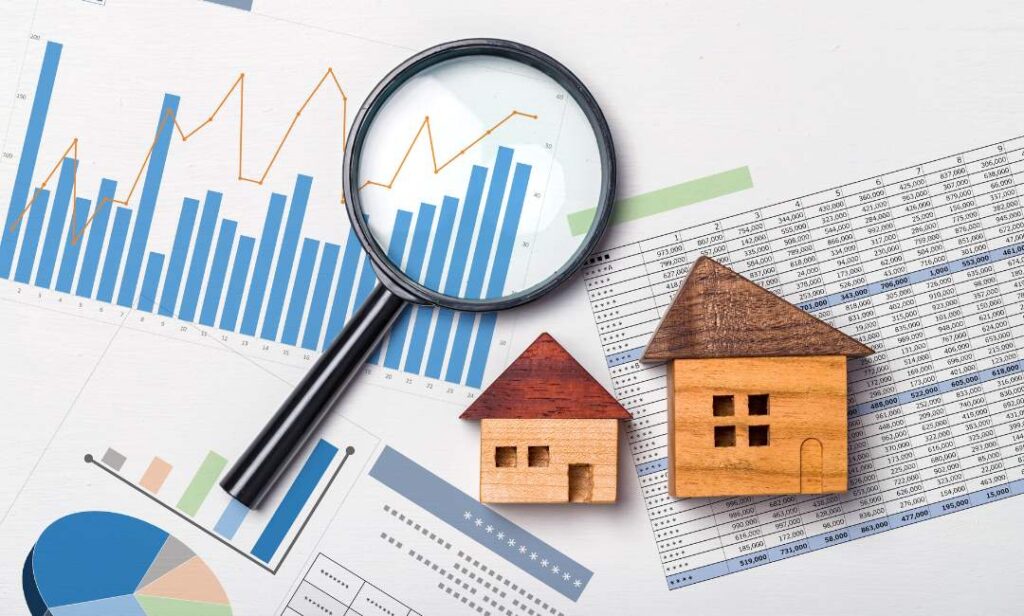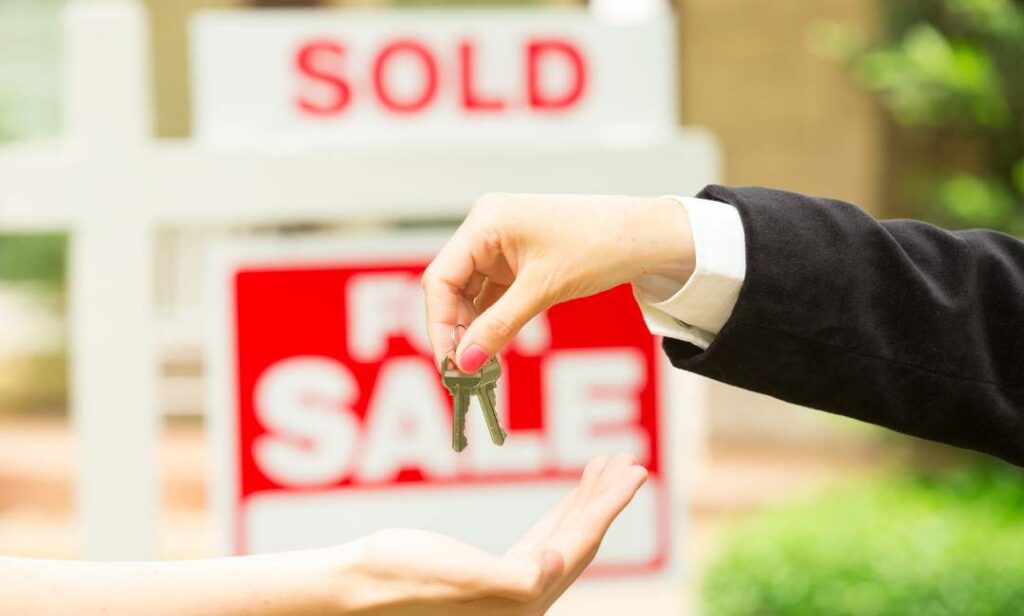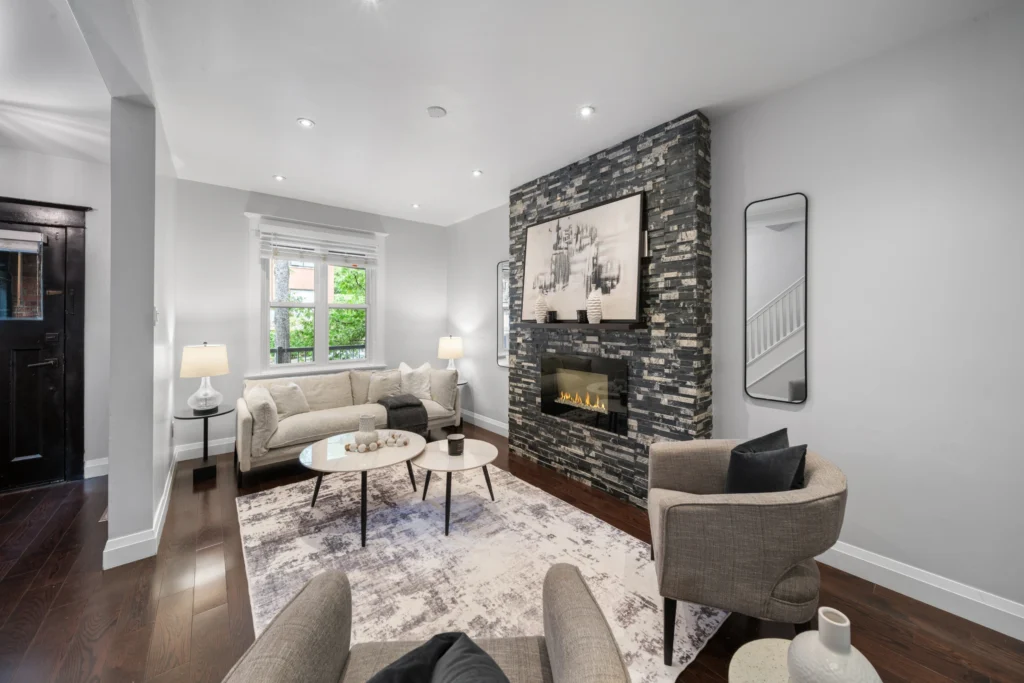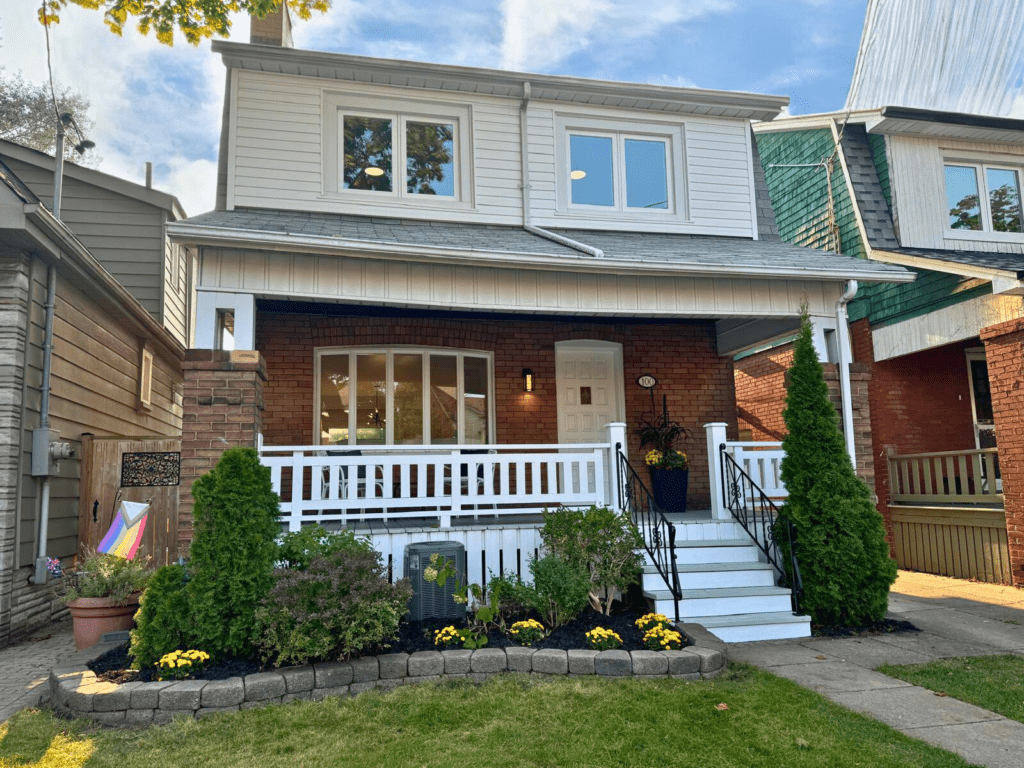Should You Buy a Home Before You Sell?
08/05/24

Deciding whether to buy a new home before selling your current one is a common dilemma homeowners face, particularly in vibrant and dynamic markets like the west end of Toronto. This decision can be especially challenging if it’s your first time navigating the real estate process as both a seller and a buyer. With neighbourhoods like High Park, The Junction, Bloor West Village, Swansea, and Warren Park offering unique opportunities and competitive markets, it’s essential to understand the implications of each choice.
At The Smith Proulx Team, we’ve guided many clients through this complex process, helping them weigh the pros and cons of buying first or selling first. Each approach has its benefits and challenges, influenced by factors such as current market conditions, financial readiness, and individual circumstances. Read on as we explore these considerations in detail, providing our expert insights to help you make the most informed decision for your situation.
- The Market Landscape: Seller's Market vs. Buyer's Market
- Financial Considerations: Can You Afford to Buy First?
- Advantages and Disadvantages of Buying First
- Advantages and Disadvantages of Selling First
- Practical Tips and Strategies
- Questions to Ask Yourself
- Expert Advice and Real-Life Examples
- In Closing...
The Market Landscape: Seller’s Market vs. Buyer’s Market

Understanding Market Conditions
The real estate market’s current state plays a crucial role in deciding whether to buy a new home before selling your existing one. In areas like High Park, The Junction, and Bloor West Village, the market can fluctuate between being a seller’s and buyer’s market. Understanding these conditions can significantly impact your decision-making process.
In a seller’s market, properties are in high demand, and inventory is low. This scenario often leads to multiple offers on homes, driving up prices and reducing the time properties spend on the market. For homeowners, this means your current home may sell quickly, giving you a shorter window to find and secure a new property. Buying first in a seller’s market can be advantageous because it allows you to lock in your next home without the pressure of rushing through the sale of your current one.
Conversely, a buyer’s market features more available properties than there are buyers, leading to longer listing times and potentially lower prices. In this scenario, selling your home first can provide a clearer financial picture and prevent the stress of maintaining two properties simultaneously. The extra time to find the right buyer for your home can also lead to better sale terms.
Expert Opinions on Market Timing
“In a hot seller’s market, securing your next home first can be a smart move, as properties sell quickly and often above asking price. However, in a buyer’s market, selling first can give you the financial flexibility and time needed to find the perfect next home,” Dave Proulx
In neighbourhoods like Swansea and Warren Park, understanding these market dynamics can help you make a more informed decision. Whether you’re looking to upsize, downsize, or move closer to amenities and schools, the market’s state will influence your strategy and timing.
Financial Considerations: Can You Afford to Buy First?

Evaluating Your Financial Position
One of the most significant challenges when considering buying a new home before selling your current one is managing the financial implications. This decision can be particularly complex in high-demand areas like High Park and BWV, where property values can be substantial.
Assessing Your Savings: The first step is to evaluate whether you have sufficient savings to cover a down payment on a new home without needing the proceeds from your current home’s sale. This includes not only the down payment but also closing costs, moving expenses, and any immediate renovations or upgrades needed in the new property.
Interim Financing Options: If your savings are insufficient to comfortably cover these costs, you might consider interim financing options such as bridge loans or a home equity line of credit (HELOC). Bridge loans provide short-term financing to bridge the gap between buying your new home and selling your existing one. However, these loans typically come with higher interest rates and fees, making it essential to calculate the costs and benefits carefully.
Cost of Carrying Two Homes: Another crucial factor is the cost of carrying two properties. This includes paying two mortgages, property taxes, utility bills, and maintenance costs. In neighbourhoods like Bloor West Village and Swansea, where property prices are robust, these costs can quickly add up, putting a strain on your finances.
Risks of Dual Ownership
While buying first offers the advantage of securing a home before selling, it comes with several financial risks:
Higher Interest Rates: Interim financing often comes with higher interest rates compared to traditional mortgages. This can increase your overall borrowing costs, especially if the period between buying and selling extends longer than anticipated.
Market Downturn: A sudden market downturn can impact your ability to sell your existing home at the expected price. This scenario could result in holding onto two properties longer than planned, increasing financial strain.
Unexpected Expenses: Managing two homes can lead to unforeseen expenses. These could include necessary repairs to your current home to make it more marketable or unexpected costs associated with the new home. Proper budgeting and a contingency fund can help mitigate these risks.
Navigating these financial considerations requires careful planning and understanding your financial limits. Consulting with a financial advisor and your real estate agent can provide valuable insights tailored to your situation, ensuring you make a decision that aligns with your financial goals and comfort level.
Advantages and Disadvantages of Buying First

Pros of Buying First
- Time Flexibility: One of the most significant advantages of buying your next home before selling your current one is its flexibility. You have the luxury to take your time finding the perfect home that meets all your needs, from location and amenities to size and layout. This is especially important in sought-after neighbourhoods like High Park and The Junction, where desirable properties can be snapped up quickly. Without the immediate pressure of selling your home, you can wait for the right opportunity to come along.
- Avoiding Temporary Housing: By securing your new home before selling, you avoid the inconvenience and stress of finding temporary accommodation. This can be particularly challenging if you have children, pets, or a lot of belongings. Moving directly from your current home to your new one also eliminates the need for short-term storage solutions, which can be costly and logistically challenging.
- Leverage in Negotiations: When you buy first, you’re not in a rush to sell your current home, which can give you more leverage in negotiations. You can make an offer on your new home without including a ‘sale of home’ condition, which can be a significant advantage in competitive markets like Bloor West Village and Swansea. Sellers are often more inclined to accept offers that are not contingent on the sale of another property, as these can close more quickly and with fewer uncertainties.
Cons of Buying First
- Financial Burden: One of the primary disadvantages of buying before selling is the financial strain of carrying two mortgages simultaneously. This can be a significant burden, particularly if your current home takes longer to sell than anticipated. Additionally, you’ll be responsible for paying property taxes, utilities, and maintenance costs for both properties, which can quickly add up.
- Risk of Market Changes: If the market conditions change unexpectedly—such as a sudden increase in interest rates or a downturn in the housing market—you might find yourself in a challenging financial position. For example, if the market cools and your current home takes longer to sell or sells for less than expected, you could be left with a shortfall that impacts your financial stability.
- Competing Offers: Even though buying first allows you to make offers without a sale condition, it’s essential to consider that this can still be risky. If your current home doesn’t sell as quickly as expected, you may need to lower the price or accept a less favourable offer, which can eat into your budget for the new home. Moreover, in hot markets, multiple offers on homes can drive prices up, making it more challenging to secure your next property within your desired price range.
While buying a new home before selling your current one offers several advantages, it also comes with significant financial risks and challenges. It’s crucial to weigh these pros and cons carefully and consider your financial capacity and the current market conditions before deciding.
Advantages and Disadvantages of Selling First
Pros of Selling First
- Clear Financial Picture: Selling your current home before purchasing a new one provides a clear understanding of your financial position. You know exactly how much you have available for a down payment and other expenses, allowing you to set a realistic budget for your next home. This clarity can be particularly beneficial in managing expectations and avoiding financial overstretching, especially in areas like Warren Park and Swansea, where property prices can vary significantly.
- Single Mortgage Commitment: By selling first, you avoid the financial strain of carrying two mortgages. This not only reduces your monthly expenses but also eliminates the stress of juggling two sets of utility bills, property taxes, and maintenance costs. This approach is especially advantageous if your financial situation is tight or if you’re concerned about the potential difficulties in selling your current home.
- Stronger Negotiating Position: With the proceeds from your sale in hand, you become a more attractive buyer. Sellers are often more inclined to negotiate with buyers who have the flexibility to close quickly without a contingent sale clause. This can be a significant advantage in competitive markets like Bloor West Village, where quick, decisive offers are often more appealing to sellers. Additionally, being a cash buyer or having secured financing can position you favourably in negotiations, potentially allowing you to secure a better purchase price.
Cons of Selling First
- Potential Housing Gap: One of the main risks of selling your home first is the possibility of finding yourself without a permanent residence if you can’t find a suitable new home quickly. This situation may necessitate temporary housing, which can be inconvenient and costly. You may need to consider short-term rentals or staying with family or friends, which can be disruptive, especially if you have children or pets.
- Price Inflation Risk: If the market experiences a surge in property prices after you’ve sold your home, you might find yourself priced out of your preferred neighbourhoods or having to compromise on your next home. This risk is particularly relevant in hot markets like High Park and The Junction, where prices can rise rapidly. Timing the market perfectly is challenging, and the longer the gap between selling and buying, the higher the risk of facing increased costs.
- Stress and Uncertainty: The uncertainty of finding a new home that meets all your criteria can be stressful. The pressure to find a new property quickly after selling your home can lead to rushed decisions, potentially resulting in compromises you’re not entirely happy with. Additionally, the process of moving twice—first into temporary housing and then into your new home—can be logistically challenging and exhausting.
Selling your current home before buying a new one offers several financial and strategic advantages, but it also comes with potential challenges and risks. It’s essential to carefully consider your personal situation, the current market conditions, and your risk tolerance when deciding whether to sell first.
Practical Tips and Strategies

Bridging the Gap: Financing Options
Navigating the transition between selling your current home and buying a new one can be financially challenging. Here are some practical strategies and financing options to help bridge the gap:
1. Bridge Loans: A bridge loan is a short-term financing option that allows you to borrow against the equity in your current home to fund the purchase of a new one. This loan “bridges” the gap between the purchase of the new property and the sale of the existing one. Bridge loans can provide the necessary funds to make a down payment or cover closing costs, but they often come with higher interest rates and fees. It’s essential to understand the terms and ensure that you can comfortably manage the payments, even if your home takes longer to sell than expected.
2. Home Equity Line of Credit (HELOC): A HELOC allows you to borrow against the equity in your current home. This revolving line of credit can be a flexible way to finance your new home purchase or cover other moving-related expenses. Unlike a bridge loan, a HELOC typically has a variable interest rate, which can fluctuate over time. It’s crucial to budget for potential increases in interest rates and ensure you can handle the repayments.
3. Contingency Plans: Having a contingency plan is essential when navigating the timing of buying and selling homes. This could include arranging for temporary housing, securing short-term storage for your belongings, or setting aside a financial buffer to cover unexpected costs. In markets like High Park and The Junction, where properties can sell quickly, having a contingency plan ensures you’re prepared for any delays or complications.
4. Pre-Approval for Mortgages: Getting pre-approved for a mortgage can streamline the buying process and give you a clear understanding of your budget. Pre-approval not only shows sellers that you’re a serious buyer but also helps you avoid overextending your finances. This step is particularly important if you’re considering carrying two mortgages or using a HELOC.
Preparing Your Home for Sale
If you decide to sell first, making your home as attractive as possible to potential buyers can help it sell quickly and for the best price. Here are some tips:
1. Staging and Repairs: Small upgrades and staging can significantly impact your home’s marketability. Consider freshening up paint, updating fixtures, and making any necessary repairs. Proper staging can help highlight your home’s strengths and make it more appealing to buyers. In neighbourhoods like Bloor West Village and Swansea, where competition can be high, a well-presented home can make a big difference.
2. Curb Appeal: First impressions matter. Enhancing your home’s curb appeal can attract more potential buyers and increase your chances of a quick sale. Simple improvements like landscaping, painting the front door, and ensuring the exterior is clean and well-maintained can make your property stand out.
3. Choosing the Right Real Estate Agent: Working with a knowledgeable real estate agent familiar with your area is crucial. They can provide valuable insights into pricing, marketing strategies, and the overall selling process. A good agent will help you set a competitive price, market your home effectively, and negotiate the best terms.
4. Timing the Market: While predicting market trends perfectly is challenging, staying informed about local market conditions can help you choose the best time to list your home. If possible, aim to sell during peak market times when demand is high, and inventory is low to maximize your sale price.
Incorporating these practical tips and strategies can help you navigate the complexities of buying and selling homes simultaneously, ensuring a smoother transition and minimizing financial risks.
Questions to Ask Yourself
Before deciding whether to buy a home before selling your current one or vice versa, it’s essential to ask yourself some critical questions. These questions will help you assess your readiness and guide your decision-making process:
1. Do you have sufficient funds for a down payment on a new home, or are you counting on the proceeds from the sale of your current home?
Understanding your financial situation is crucial. If you’re relying on the equity from your current home to fund the down payment on your new property, selling first might be the better option. However, if you have ample savings, you may have more flexibility to buy first.
2. Could you handle carrying two mortgages, even if it is for a few months?
Assess your ability to manage the financial burden of two mortgages, property taxes, utilities, and other associated costs. This includes evaluating your income stability, savings, and other financial commitments. If the thought of carrying two mortgages is overwhelming, it might be safer to sell first.
3. Is your housing market tilting toward buyers or sellers?
The market conditions in your area can significantly influence your decision. Buying first might give you more negotiating power and options in a seller’s market, where demand outstrips supply. In contrast, selling first in a buyer’s market could protect you from potential declines in property values.
4. Do you have any emergency plans should things not work out in your favour?
Having a contingency plan is crucial. Consider what you would do if your current home doesn’t sell quickly, if the market conditions change, or if unexpected costs arise. This might include having a backup housing plan, extra savings, or a financial safety net.
5. Are you comfortable with the risks associated with your choice?
Both buying first and selling first come with risks. Assess your risk tolerance and comfort level with potential scenarios, such as a prolonged selling period or rising property prices. Understanding your personal risk tolerance can help you make a more informed and confident decision.
Expert Advice and Real-Life Examples
Hearing from real estate professionals and real-life case studies can provide additional insights and perspectives:
Renee Proulx from The Smith Proulx Real Estate Team advises,
“Don’t forget to carefully review your financial situation and the market before making a decision. Whether you choose to buy first or sell first, it’s important to have a clear plan and understand the potential risks. This will help you navigate the process more smoothly.”
Consider a family living in Bloor West Village who recently faced this decision. They chose to sell first, ensuring they had a clear budget for their next purchase. Despite some anxiety about finding a new home quickly, they ultimately found a perfect property, taking advantage of the market’s timing and their strong financial position as cash buyers.
In Closing…
Deciding whether to buy a home before selling your current one requires careful consideration of various factors, including market conditions, financial readiness, and personal comfort with risk. Both approaches have their advantages and drawbacks, and what works best for one person might not suit another. By thoroughly assessing your situation, consulting with experts like The Smith Proulx Team, and planning for potential challenges, you can make a decision that best fits your needs.
For homeowners in vibrant Toronto neighbourhoods like High Park, The Junction, Bloor West Village, Swansea, and Warren Park, these considerations are particularly relevant given the dynamic nature of the local real estate market. If you’re navigating this decision, we’re here to help. Contact The Smith Proulx Team today to discuss your options and get expert guidance tailored to your unique situation.
Are you struggling with the dilemma, too?
The Smith Proulx Real Estate Team has the experience and record of helping home owners make smooth and quick transitions. Let's talk about your options.



